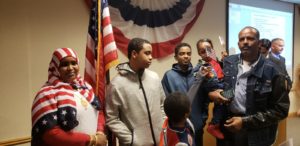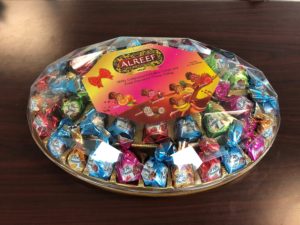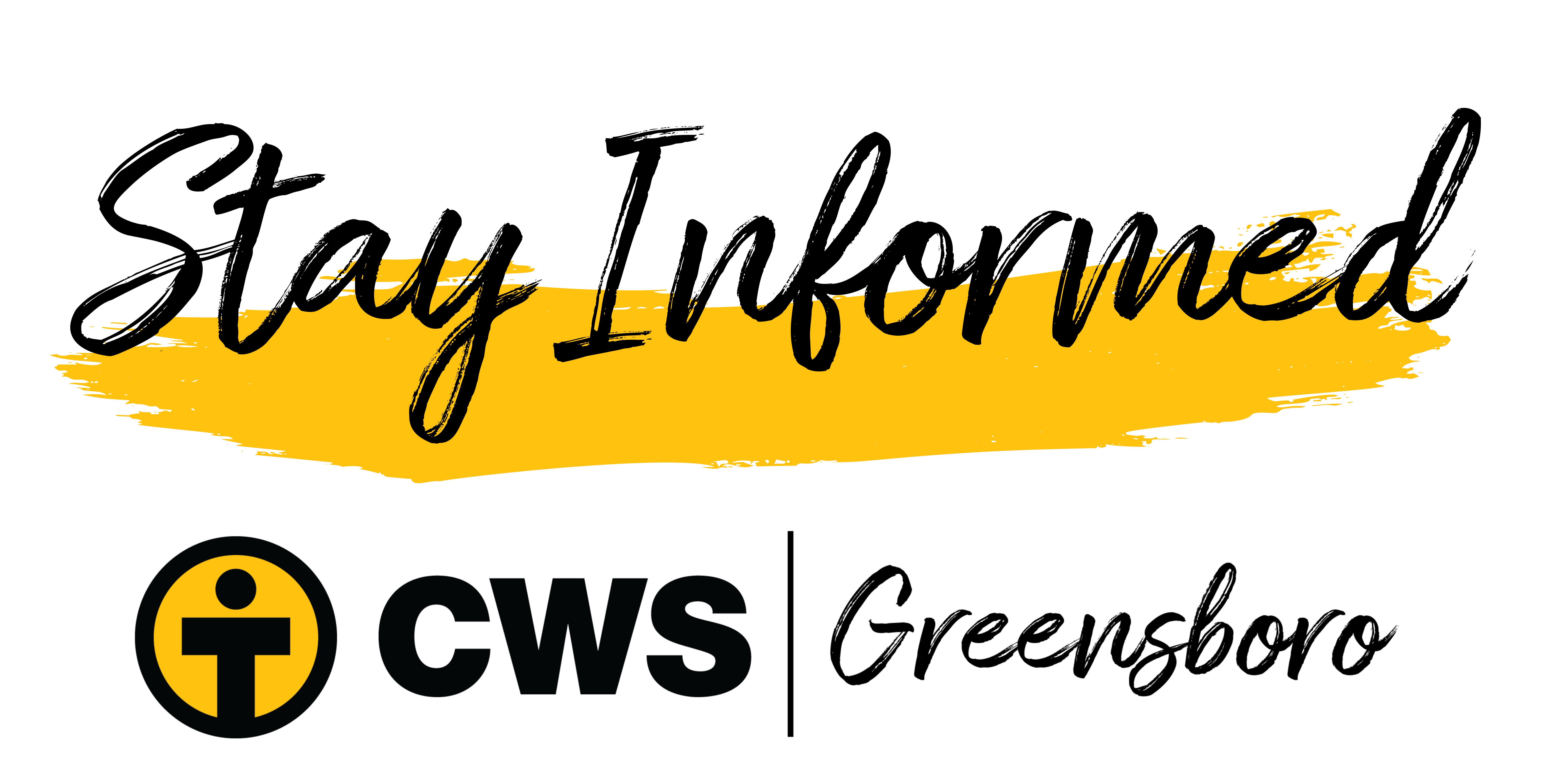 In May 2012, Ibrahim Salih and Nada Ahmed arrived in Greensboro as refugees from Sudan. They got on a plane to the United States after three and a half years of living as asylees in Egypt. “We didn’t even know English, not even a little English. Zero, zero, zero.”
In May 2012, Ibrahim Salih and Nada Ahmed arrived in Greensboro as refugees from Sudan. They got on a plane to the United States after three and a half years of living as asylees in Egypt. “We didn’t even know English, not even a little English. Zero, zero, zero.”
English proved to be only one challenge among many. Just before flying to the United States, Ibrahim had broken his arm. Two weeks after resettling in Greensboro, he broke his other arm. Ibrahim attributes his injuries to insufficient calcium intake while in Egypt. “The milk is not good…People have a lot of problem with it.”
Ibrahim and Nada had no family in Greensboro. African Services Coalition provided the initial resettlement services. They also found a strong Sudanese community to support them. One Sudanese woman in particular helped him find a job at Wal-Mart where she worked. She took him to an interview. “The manager, he told me, ‘You don’t speak English. How are you going to work?’ I told him, ‘Hey, just give me 7 days.’” Ibrahim did not speak English, but he proved to be a good worker. The manager kept him on. Working at Wal-Mart helped Ibrahim improve his English.
For Ibrahim, he recognizes that refugees need help, just as he relied on his friend initially to help him secure a job. Yet, he also emphasizes the importance of individual hard work and learning English, both of which helped him become a citizen. In his perspective, becoming self-sufficient is a way to give other people—and other newly-arrived refugees in particular—a chance. “People help you the first and second year. But there are people that need it more than you. I am old now.”
Ibrahim and Nada have been in the United States for over six years now, which made them eligible to apply for US citizenship. This past year, Ibrahim and Nada attended CWS citizenship class in preparation for their naturalization interview. “The classes give me good ideas and explained a lot to me.”
While the two were studying for their exams and practicing for their interview, they also met with the CWS attorney Elizabeth DeFrance to apply for citizenship. “She’s very, very nice…She don’t play. Some people don’t care about you. She do everything 100 percent”.
At the beginning of October, Ibrahim and Nada went for their interview. Ibrahim was nervous. “For me, anyone tells you that you’re going to have an interview, you’re going to be nervous.” Ibrahim’s interview went smoothly. He says that the officer interviewing him was very kind. At the end of the test and interview, she smiled and told him, “Congratulations! You passed, and you are a US citizen!”
Yet, he advises friends who are preparing for the naturalization exam that not every interviewer will be as warm. How well you do on the interview can depend on the day and the person conducting the interview. “I give people an example like this: Some people, if you’ve got a problem in your house, you’re going to bring that problem to that place where you work. [So if the interviewer has a problem] and the same day, you have an interview, the interview is not going to be easy for you.”
Nada’s own experience reinforced his perspective. “My wife, she found the bad person. Ahh—I don’t want to say bad, but in a way it was bad because at the end of the interview, he didn’t talk to her like an American citizen.” Nada’s interview was tough. She received no smiles or encouragement during the conversation. At the end, there were no congratulations. Only after she asked if she passed did the officer begrudgingly say, “Yes.”
Despite the challenges of the day, they both passed—and the  whole family celebrated. They went out to eat and spent the day enjoying the moment. They even brought a gift of candy to the CWS office so we could share in their joy as well. Ibrahim and Nada took their oath for citizenship just a week after they passed their interview.
whole family celebrated. They went out to eat and spent the day enjoying the moment. They even brought a gift of candy to the CWS office so we could share in their joy as well. Ibrahim and Nada took their oath for citizenship just a week after they passed their interview.
They registered to vote the same day. In November, Ibrahim voted for the first time. Ibrahim says that the day he and his wife passed the naturalization interview was the most important day of life in the United States so far. “Oh my God, Oh my God. It was not easy day…Of the five years, this was the good day.”
“When you are a refugee, you lose your country. You lose your home. And when you get citizenship from a country like the US, you are accepted.”
This story was the second in a series that CWS shared with the community leading up to Giving Tuesday (Nov. 27). Church World Service Greensboro is grateful to refugee neighbors like Ibrahim and Nada who bring their own experiences and courage to Greensboro, and we are grateful to all our supporters who through their time, prayers, and money make the transformative opportunity of naturalizing as US Citizens possible for former refugees.

